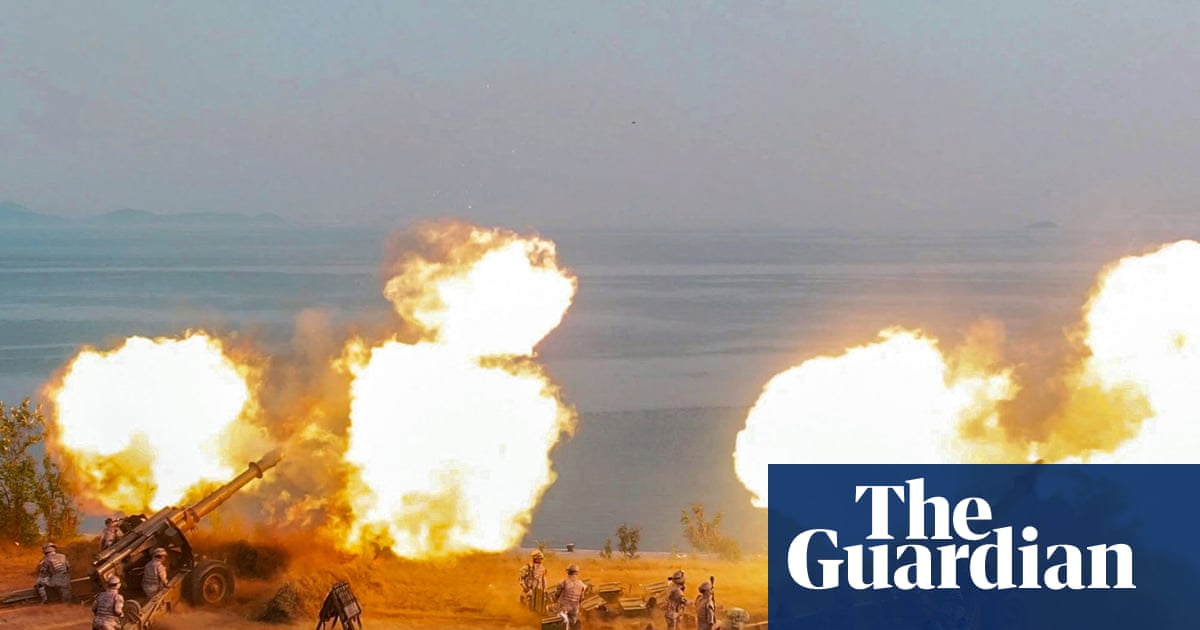North Korea has supplied to Russia as many as nine million rounds of artillery and rocket launcher ammunition, as well as at least 100 ballistic missiles along with self-propelled artillery guns and long-range multiple rocket launchers, according to the Multilateral Sanctions Monitoring Team, a group comprising 11 UN members. The shipments haveenabled Russia to increase attacks against civilian targets, and there have been 20,000 containers of the gear transferred by Russian cargo ships, in violation of UN sanctions. The monitoring group comprises the US, South Korea, Japan, and eight other UN member states. It was set up afterRussia and China cooperated to scrap an official security council panelthat did the job.
The multilateral group has said in its first ever report thatRussia is helping North Korea improve its missiles’ guidance systems by sending back data from the battlefield. Moscow also provided air defence equipment, anti-aircraft missiles and electronic warfare systems to North Korea. “At least for the foreseeable future, North Korea and Russia intend to continue and further deepen their military cooperation in contravention of relevant UN security council resolutions.” After months of silence, North Korea and Russia confirmed in April thatNorth Korean troops have been fighting on the Russian sidein the Ukraine war.
Russia’s SVR intelligence service has complained about Serbian ammunition ending up in Ukrainian hands via other countries when Moscow expects Belgrade’s “fraternal Slavic” obedience.The SVR alleges the trail leads to Ukraine through the Czech Republic, Poland and Bulgaria. Serbia’s president, Aleksandar Vucic, told RTS television that he had discussed the exports with Vladimir Putin and the two countries would form a “working group” about it. But Vucic added that Serbia was criticised by both the east and west “because it leads autonomous and independent policies … Our factories must live and work. About 24,000 people work directly in the defence industry, and they depend on this industry.” Vucic has previously said that once the ammunition is sold to another country, he does not care where it goes next.
At the United Nations, the US told the security council on Thursday that its proposal for a30-day comprehensive ceasefire was “Russia’s best possible outcome” and Vladimir Putin should take it. “We want to work with Russia, including on this peace initiative and an economic package. There is no military solution to this conflict,” acting US ambassador John Kelley told the council.
Russia is supposed to put forward amemorandum of its terms for peacebut is refusing to do hand it over – demanding a further meeting with Ukraine, which says it has already sent its conditions. Kelley condemnedRussia’s recent attacks on Ukraine as not demonstrating “a desire for peace”.“We will judge Russia’s seriousness towards ending the war, not only by the contents of that term sheet, but more importantly, by Russia’s actions … Additional sanctions on Russia are still on the table.”
Ukraine’s president,Volodymyr Zelenskyy, said Russia was engaging in “yet another deception”by failing to hand over its peace settlement proposal ahead of their potential next meeting in Turkey on 2 June. “Even the so-called memorandum they promised and seemingly prepared for more than a week has still not been seen by anyone … despite promises to the contrary, first and foremost to the United States of America, to President Trump. Yet another Russian deception.” Ukraine’s foreign ministry spokesperson Heorhii Tykhyi said that without being able to review Russia’s memorandum, Kyiv would conclude “it islikely filled with unrealistic ultimatums, and they are afraid of revealing that they are stalling the peace process”.
Recep Tayyip Erdoğan – president of Turkey which would again host the talks – called on Russia and Ukraine not to “shut the door” on dialogue.“The road to a resolution goes through more dialogue, more diplomacy. We are using all our diplomatic power and potential for peace,” he said, according to his office.
